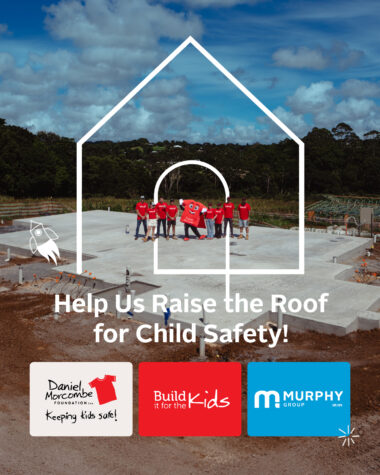New research[1] reveals that over four million Australians[2] are currently living in ‘hygiene poverty’, with more than 1 in 7 (15%) recently skipping buying essential personal hygiene or household cleaning products because they were unable to afford them.
The research into the cost-of-living crisis, conducted by leading charity Good360 Australia, also highlights that 1 in 5 Australians are worried about not being able to afford personal hygiene or household cleaning products in the future (20%), and that 18% are concerned about their family having access to the essential products they need to be healthy.
Hygiene poverty is going without one or more hygiene products because you cannot afford them. It is often a precursor to food and fuel poverty, as people are likely to give up products like shampoo before they go without food.
According to the research, the high rate of hygiene poverty is having a devastating impact on people’s lives. One in ten say the inability to afford personal hygiene or cleaning products has impacted their mental health (10%), while a further one in ten say it’s impacted their physical health. Eight per cent of respondents also say they are avoiding social events or missing work due to the impacts of hygiene poverty. Meanwhile, the research found that for 14% this is the first time they’ve had issues affording personal hygiene or cleaning products.
Alison Covington AM, Founder and Managing Director of Good360 Australia, says the findings are deeply concerning and reinforces the many ‘hidden’ daily issues Australians are grappling with amid the cost-of-living crisis.
“Our research reveals hygiene poverty is impacting millions of Australians. It’s heartbreaking to see families having to choose between heating, eating or keeping clean. Hygiene poverty has profound implications not just for physical health, but also for mental and emotional wellbeing,” said Ms Covington.
“Hygiene poverty is a hidden issue because it can be embarrassing to talk about. It can mean avoiding a job interview because of concerns over body odour, missing work or school due to lack of period products, or students being bullied because of hygiene issues. It can mean families avoiding social interactions out of embarrassment, or children not going to day care because their parents can’t afford nappies.
“These are basic items that most of us take for granted, but for many they are becoming unaffordable luxuries. In a country as wealthy as Australia, this shouldn’t be happening. Everyone deserves access to basic hygiene and cleaning essentials. It's time to come together as a community to ensure every Australian has the dignity of cleanliness and the opportunity for good health,” Ms Covington said.
Good360, which connects unsold consumer goods with charities and disadvantaged schools helping Australians in need, has seen a surge in demand for personal hygiene and cleaning products, with charities not having access to enough items to support people in need. Already in 2024, Good360 has connected more than $20 million worth of hygiene items to Australians in need, supporting over 207,000 people.
“Demand for donated personal hygiene and household cleaning products is outstripping supply as the cost-of-living crisis continues to impact households around the country. That’s why it’s crucial for retailers to step up and donate unsold goods and for governments to step in and help fund the delivery of other essentials like soap, shampoo and toothpaste to people in need.
“By redirecting these products, we can significantly alleviate this crisis. Retailers have the power to make a massive difference in the community, preventing waste and helping millions of Aussies maintain their dignity and health,” Ms Covington said.
The research also highlights that women, younger people and people living in South Australia and NSW are more likely to be impacted by hygiene poverty.
More likely to have skipped buying hygiene products because they can’t afford them:
- Women (16% vs 13% of men)
- South Australians (21% vs 15% average) and NSW residents (17%)
- Younger people (18% of 25–34 year olds)
More likely to be worried about not being able to afford hygiene products:
- Women (25% vs 15% of men)
- Western Australians (25% vs 20% average) and NSW residents (22%)
- Younger people (28% of 25-34 year olds and 25% of 18-24 year olds)
More concerned about their family not having access to the essential hygiene products they need:
- Women (22% vs 14% of men)
- Queenslanders (22% vs 18% average)
- 35-44 year olds (23% vs 18% average)
[1] Nationally representative online survey of 1,000 Australians conducted by PureProfile in June 2024 on behalf of Good360
[2] Based on survey findings and ABS Australian population data
Key Facts:
An estimated $2.5 billion of unsold household goods are wasted each year - rather than being used or donated to people in need.
Report by Deloitte Access Economics (2022) commissioned by Good360 Australia
About us:
About Good360 Australia: Good360 Australia is the largest digital marketplace in Australia for the retail industry to donate unused and unsold consumer goods to people in need. Good360 is a connector – we distribute millions of new, unsold consumer goods like clothes, homewares, appliances, furniture, toiletries and toys that have been donated by our 500 partners, to a network of over 4,000 charities and disadvantaged schools across Australia supporting people in need. The result is a Circle of Good that reduces need and waste in our communities, helping both people and our planet. www.good360.org.au
Contact details:
Ben – 0431 180 161 / [email protected]

